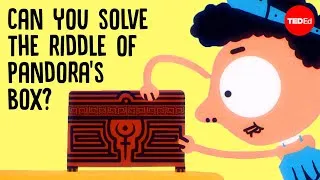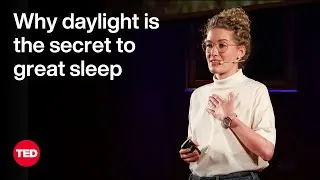How to Add Emphasis in English - Improve Your Spoken English
105,745 views ・ 2020-06-12
請雙擊下方英文字幕播放視頻。
00:01
Hi, my name’s Marie.
0
1020
1630
嗨,我是Marie。
00:02
welcome to Oxford Online English!
1
2650
2190
歡迎來到Oxford Online English!
00:04
In this video, we’re going to show you how
to add emphasis while speaking English.
2
4840
4799
在本影片裡,我們會教您在說英文時,
怎樣加強語氣。
00:09
But what does it mean to add emphasis?
3
9639
3231
但是,加強語氣是什麼意思?
00:12
Adding emphasis is a way to show your listener
that certain words or ideas are more important.
4
12870
7140
加強語氣是一種會讓您的聽眾知道某些字或意見
很重要的一種方式。
00:20
In this lesson, you’ll see how to use different
pronunciation features and grammar structures
5
20010
5160
在本課程裡,您會看到怎樣用不同的發音特點
和語法結構
00:25
to add emphasis to your spoken or written
English.
6
25170
4090
來給您講的英文或書寫的英文加強語氣。
00:29
Another thing: don’t forget to turn on subtitles
if you need them!
7
29260
3470
還有一件事:如果您需要,
不要忘記打開字幕!
00:32
This video has English subtitles; click the
‘CC’ button on the video player to turn
8
32730
4730
本影片有中英文字幕:點擊
影片播放軟體的“CC”鍵
00:37
them on.
9
37460
1260
來打開字幕。
00:38
On your mobile phone, use the settings icon.
10
38720
3000
在您的行動電話上,用設定圖示來打開字幕。
00:41
Let’s start with one of the most common
ways to add emphasis to an idea.
11
41720
7340
我們用一個最常用的方式來開始對
一個想法加強語氣。
00:49
What time is John flying to Paris tomorrow?
12
49060
2120
John明天幾點飛到巴黎?
00:51
He isn’t flying to Paris *tomorrow.*
Did you hear the stressed word?
13
51190
5070
他飛到巴黎不是“明天”。
您聽到了重讀的字嗎?
00:56
Which one was it?
14
56260
1950
那是哪一個?
00:58
Hopefully, you heard that ‘tomorrow’,
was stressed.
15
58210
3320
希望您能聽到“tomorrow”
是重讀的。
01:01
Why do you think this is?
16
61530
3720
您覺得為什麼是這個?
01:05
Before we answer that question, let’s have a look
at three more examples.
17
65250
3340
我們回答問題之前,我們多看
三個例句。
01:08
Listen for the stressed words and think about what the stress means.
18
68590
5430
聽重讀的字並考慮重讀的意思。
01:14
What time is John flying to Paris tomorrow?
19
74020
1880
John明天幾點飛到巴黎?
01:15
He isn’t *flying* to Paris tomorrow.
20
75900
3200
明天他不是“飛”到巴黎。
01:19
What time is John flying to Paris tomorrow?
21
79100
2399
John明天幾點飛到巴黎?
01:21
*He* isn’t flying to Paris tomorrow.
22
81499
2870
不是“他”明天飛到巴黎。
01:24
What time is John flying to Paris tomorrow?
23
84369
2360
John明天幾點飛到巴黎?
01:26
He isn’t flying to Paris tomorrow.
24
86729
2351
明天他不飛到巴黎。
01:29
In the first sentence, ‘flying’ was stressed.
25
89080
3040
在句一裡,重讀的是“飛”。
01:32
In the second, ‘he’ was stressed.
26
92120
2740
在句二裡,重讀的是“他”。
01:34
And the third?
27
94860
1440
那麼句三呢?
01:36
There were no stressed words!
28
96300
1909
沒有重讀的字。
01:38
Trick question.
29
98209
1550
技巧問題。
01:39
When you stress one word, you show that this
idea is more important.
30
99760
5300
當您重讀一個字,您表明這個想法很重要。
01:45
Often, you do this to show contrast with an
opposite idea, or to disagree with someone.
31
105060
5900
通常,您這樣做是用一個相反的意見來反對,
或是不同意某人的意見。
01:50
In the first sentence, adding stress to ‘flying’ means that he is going to Paris
32
110960
4640
在句一裡,重讀“飛”意思是他明天去巴黎,
01:55
tomorrow, but that he isn’t going
by plane.
33
115609
3341
但他不是搭飛機過去。
01:58
Maybe he’s taking the Eurostar train
34
118950
2250
也許他搭歐洲之星火車
02:01
or driving.
35
121200
1220
或開車。
02:02
What about the second sentence?
36
122420
2300
那句二呢?
02:04
What does it mean if you stress the word ‘he’?
37
124720
4220
如果您重讀“他”,是什麼意思呢?
02:08
This suggests that other people
we know are flying to Paris tomorrow, but
38
128940
4440
這就是說我們認識的其他人
明天飛去巴黎,但
02:13
‘*he’* isn’t.
39
133380
2420
不是“他”。
02:15
What about our first example?
40
135800
1940
那我們的第一個例子呢?
02:17
What does it mean if you stress the word ‘tomorrow’?
41
137740
3620
如果您重讀“明天”這個字,是什麼意思呢?
02:21
Think about it.
42
141360
2780
考慮一下
02:24
Adding stress to ‘tomorrow’ means
he is flying to Paris, but not tomorrow.
43
144140
5610
重讀“明天”就是說他是飛到巴黎的,
但不是明天。
02:29
Maybe he’s flying today, or the day after
tomorrow.
44
149750
4340
也許他今天飛到巴黎,或後天。
02:34
Adding word stress is a simple way to add
emphasis to your idea.
45
154090
4270
字彙重讀是一個對您要表述的意思
加強語氣的簡單方式。
02:38
This is especially useful when you want to
correct someone, or disagree with somebody
46
158360
4480
這對您想糾正某人說的,
或不同意某人的意見
02:42
else.
47
162840
4060
特別有用。
02:46
So, what did you think of the movie?
48
166900
1380
那麼,您覺得電影怎樣?
02:48
Amazing!
49
168280
680
02:48
It was so tense!
50
168960
1220
精彩!
太緊張了!
02:50
Yeah, I saw you jump so many times!
51
170180
2260
真的,我看到您跳起來好幾次!
02:52
I know!
52
172440
1020
我知道!
02:53
*Never* have I been so scared.
53
173460
2580
“從來”我都沒有這麼害怕過。
02:56
That basement scene was so frightening, I
could hardly watch.
54
176040
3340
地下室的場景非常恐怖,
我幾乎都不敢看。
02:59
And the ending!
55
179420
1300
而結局!
03:00
What a twist!
56
180730
1050
則是不可思議!
03:01
At no point did I see that coming.
57
181780
2260
我從未看過這樣的。
03:04
What was the director’s name again?
58
184060
1620
再問一下,導演的名字是什麼?
03:05
Maria Thornby, I think.
59
185800
2220
我想是Maria Thornby。
03:08
Not only did she direct it, but she also wrote
and starred in it too!
60
188020
4420
她不僅導演這部電影,她還寫
這個電影的劇本,也參與演出!
03:12
She’s one to watch, then.
61
192440
2440
那麼,看她的作品。
03:14
Look at two sentences.
62
194880
3500
看看兩個句子
03:18
You heard one of these in the dialogue.
63
198380
2160
您在對話中聽到了一個。
03:20
Do you remember which?
64
200540
3820
您記得是哪一個嗎?
03:24
You heard number two.
65
204360
1640
您聽下句二。
03:26
Next question: what’s the difference between
these two sentences?
66
206000
6260
下個問題:這兩句有什麼不同?
03:32
The structure in sentence two is called an
inversion.
67
212270
4130
句二的句型結構是倒裝。
03:36
This is another way to add emphasis to your
ideas.
68
216400
3500
這是對您的意見加強語氣的另一種方式。
03:39
When you make an inversion, you do two things:
first, you start the sentence with an adverb,
69
219900
7140
當您做一個倒裝時,要做兩件事:
首先,您用一個副詞作為句子的起始,
03:47
like ‘never’, ‘only’, ‘not only’
or ‘at no point’.
70
227040
5520
像是‘never’、‘only’、‘not only’
或是‘at no point’。
03:52
The adverb can be a single word or a phrase.
71
232560
3690
副詞可以是一個字或一個片語。
03:56
Secondly, you put an auxiliary verb before
the main verb.
72
236250
3700
其次,您在主動詞前放一個助動詞。
03:59
You can make inversions in different verb
tenses.
73
239950
3560
您可以在不同的動詞時態做倒裝。
04:03
For example, look at four sentences.
74
243510
3130
例如,看四個例句。
04:06
Can you say what verb tenses they are?
75
246640
4320
您可以說出這些是什麼動詞時態嗎?
04:10
Could you do it?
76
250960
1000
您可以做嗎?
04:11
Pause the video if you want more
time to think.
77
251960
5360
如果您想多考慮一下,暫停影片。
04:17
Sentence one is past perfect.
78
257320
2900
句一是過去完成式。
04:20
Two is present simple.
79
260229
2261
句二是簡單完成式。
04:22
Three is future, with ‘will’, and four
is past simple.
80
262490
6390
句三是有“will”的未來式,
句四是過去簡單式。
04:28
Inversions like this are more common written English,
81
268880
3420
類似這樣的倒裝在英文書寫裡很常見,
04:32
but you might hear them in conversations, too.
82
272300
2860
但您也可能在對話裡聽到他們。
04:35
Like all emphasis, you shouldn’t overuse
them.
83
275160
6140
像是所有的加強語氣一樣,
您不能過度地用他們。
04:41
You’re not coming to the party tonight,
right?
84
281300
1940
今晚您不會參加聚會,對嗎?
04:43
I *am* coming!
85
283240
1800
“會的”我來!
04:45
Why would you think I wasn’t?
86
285040
1460
為什麼您覺得我不會去?
04:46
Well, last time we went to their place, you
were in a terrible mood.
87
286500
3160
好吧,上次我們去他們的地方,您看上去感覺很糟糕。
04:49
It didn’t look like you were enjoying yourself
at all.
88
289660
2100
您玩得不是很開心。
04:51
Well, I was quite tired, but I *did* have
a good time.
89
291760
3740
是的,我很累,但是我玩得還不錯。
04:55
OK, well that’s good.
90
295500
2000
好的,好,那就好。
04:57
I *do* hope you’re bringing Michelle with
you, too?
91
297500
2780
我想您帶上Michelle一起來?
05:00
I haven’t seen her for ages.
92
300280
1620
我幾年沒看到她了。
05:01
Yes, she’ll be there.
93
301900
1600
好的,她會來的。
05:03
Is she going to make her orange cake again?
94
303500
2300
她又去做她的香奇士蛋糕?
05:05
That was the best!
95
305800
1400
那很好吃!
05:07
I’ll ask her.
96
307200
1400
我會問她的。
05:08
She *does* make the best cakes.
97
308600
2600
她做最好的蛋糕。
05:11
In the dialogue, you heard four examples of
adding emphasis by stressing an auxiliary verb.
98
311200
6000
在對話裡,您聽到四個有重讀助動詞
來加強語氣的例句。
05:17
Can you remember the sentences you heard?
99
317200
2900
您能記得您聽到的那些例句嗎?
05:20
Which auxiliary verb did they use?
100
320100
4100
他們用哪一些助動詞?
05:24
You heard these four sentences.
101
324200
4000
您聽到了這四個句子。
05:28
One of these four is different from the others.
102
328200
3000
四個句子裡有一句與其他的不同。
05:31
Can you see which sentence is different, and
why?
103
331200
5300
您能看出是哪一句不同嗎?為什麼不同?
05:36
The sentence ‘I *am* coming’ is different.
104
336500
4420
句子“I *am* coming”是不同的。
05:40
It’s different because in the other three
sentences, you add an auxiliary verb for emphasis:
105
340920
5880
不同之處在於其他的三個句子裡,
您增加了一個助動詞來加強語氣:
05:46
‘do’, ‘does’ or ‘did’.
106
346800
4000
‘do、‘does’ 或‘did’。
05:50
Here, there’s already an auxiliary verb
– ‘am’ – and you simply pronounce
107
350800
4680
這裡,有一個助動詞—‘am’ – 您簡單地
05:55
it with more stress.
108
355480
2560
用較重的發音。
05:58
If you have a sentence in the present simple
or past simple, and you want to add emphasis,
109
358040
5760
如果您有一個現在簡單式或過去簡單式
的句子,您想加強語氣,
06:03
with most verbs you can add an auxiliary verb
‘do’, ‘does’ or ‘did’ to make
110
363800
5200
可以給大部分的動詞添加一個
助動詞,如‘do’、‘does’或‘did’,
06:09
your idea sound stronger.
111
369000
2200
這樣您的意見聽上去更突出。
06:11
You need to pronounce the auxiliary verb with
stress, too.
112
371200
3160
您也要重讀助動詞。
06:14
Don’t say ‘I did have a good time’.
113
374360
2640
不要說“I did have a good time”。
06:17
Say ‘I *did* have a good time.
114
377000
3000
說“I *did* have a good time”。
06:20
In other verb tenses, there is already an
auxiliary verb.
115
380000
3900
在其他的動詞時態,已經有一個助動詞了。
06:23
For example: ‘I am going to tell her.’
116
383900
4300
例如:“I am going to tell her.”
06:28
‘They can speak Italian.’
117
388200
3700
‘They can speak Italian.’
06:31
‘You have grown a lot.’
118
391900
3700
‘You have grown a lot.’
06:35
To add emphasis to sentences like these, simply
pronounce the auxiliary verb with stress,
119
395600
5999
給類似這些句子加強語氣,
簡單地重讀助動詞就好,
06:41
like this: ‘I *am* going to tell him.’
120
401600
4480
像是這個: ‘I *am* going to tell him.’
06:46
‘They *can* speak Italian.’
121
406080
3940
‘They *can* speak Italian.’
06:50
‘You *have* grown a lot.’
122
410020
3760
‘You *have* grown a lot.’
06:53
Now, let’s look at one more way you can
add emphasis when you speak.
123
413780
7220
現在,我們再看一個在您說話時
能加強語氣的方式。
07:01
Olivier, can you come downstairs, please?
124
421000
2420
Olivier,您可以下樓嗎,拜託?
07:03
What’s happened?
125
423430
1000
什麼事?
07:04
Look in the living room.
126
424430
1109
來起居室看一下。
07:05
Did you break the TV?
127
425539
1160
您打破了電視機嗎?
07:06
I didn’t break the TV!
128
426699
2030
我沒有打破電視機!
07:08
Well, what happened then?
129
428729
1511
好吧,那這發生了什麼事?
07:10
It was the dog who did it!
130
430240
2009
那是狗做的!
07:12
He ran through the living room chasing the
cat and got caught on the wires.
131
432249
4311
他穿過起居室去追貓,
抓住了電線。
07:16
OK, sorry, my mistake.
132
436560
2340
好的,抱歉,我的錯。
07:18
Look at a sentence you heard.
133
438900
3180
看下您聽到的一個句子。
07:22
Here’s a question: why say it like this?
134
442080
3320
這有一個問題:為什麼這麼說?
07:25
Why not just say ‘The dog did it’?
135
445409
3820
為什麼不說:“狗做的?
07:29
You can probably guess the answer: saying
it this way adds emphasis.
136
449229
4931
您可能猜到了答案:這是加強語氣的方式。
07:34
But, do you know what this sentence structure
is called?
137
454160
4620
但是,您知道這個句子的結構是什麼嗎?
07:38
It’s called a cleft sentence, also known
as a focusing sentence.
138
458780
5199
他是分裂句,也稱為重點句。
07:43
‘Cleft’ has a similar meaning to ‘split’
or ‘divided’.
139
463979
4140
‘Cleft’ 有一個與‘split’或‘divided’相似的意思。
07:48
In the sentence we used – ‘It was the
dog who did it’ – you can see that the
140
468119
4431
在我們用的句子裡 – ‘It was the
dog who did it’ – 您可以看到
07:52
sentence is in two parts.
141
472550
2149
句子有兩個部份。
07:54
The first, ‘it was the dog’ and the second
‘who broke the TV’.
142
474699
4960
第一部份,‘it was the dog’和第二部份
‘who broke the TV’.
07:59
A cleft sentence will always have at least
two verbs: one in the first part, and one
143
479659
4651
一個分裂句總會有至少兩個動詞:
一個在第一部份裡,一個
08:04
in the second.
144
484310
1590
在第二部份裡。
08:05
Cleft sentences often start with the word
‘it’, but they can also start in different
145
485900
4480
分裂句通常會用字‘it’開頭,
但是他們也可以用不同的
08:10
ways.
146
490389
1000
方式開頭。
08:11
You can also start a cleft sentence with ‘what’
plus a clause.
147
491389
4511
您也可以用‘what’加一個從句
來開始一個分裂句。
08:15
For example ‘what I hate most about living
here is the dark winters.’
148
495900
7400
例如”住在這裡我最討厭的
是黑暗的冬季。“
08:23
‘What I need right now is a good long holiday.’
149
503300
4900
“現在我需要的是一個很棒的長假。”
08:28
‘What I’d like to do is put this aside
and think about it again after a good night’s
150
508200
5960
“我想做的是把這放一邊,
睡個好覺之後
08:34
sleep.’
151
514160
2740
再考慮它。”
08:36
It’s also possible to make cleft sentences
starting with ‘all’, ‘something’ or
152
516900
5740
用“all”、“something”或是“one thing”
來做分裂句的開頭也是
08:42
‘one thing’.
153
522640
1360
有可能的。
08:44
For example ‘All I want is to lie down.
154
524000
2650
例如“所有我想做的就是躺下來。
08:46
I feel terrible!’
155
526650
3010
我覺得恐怖!“
08:49
‘Something you should think about is choosing
the words you use more carefully.’
156
529660
6140
”有些您必須考慮的事情是
更小心地選擇您的用字。“
08:55
In the last sentence, you could also use ‘one
thing’, which is interchangeable with ‘something’.
157
535800
7520
在最後一個句子裡,您也可以用”one thing“,
他是可以和”something“互通的。
09:03
There are other ways to form cleft sentences,
but these are the most common.
158
543320
4800
有其他的方式來構建分裂句,
但是這是最常見的。
09:08
All these sentences follow the same pattern;
they’re divided into two parts, with at
159
548120
5320
所有這些句子有相同的構造;
他們被分割成兩個部份,
09:13
least one verb in each part.
160
553440
2840
每個部份至少一個動詞。
09:16
Thanks for watching.
161
556280
1220
感謝觀看。
09:17
See you next time!
162
557500
1000
下次見!
New videos
關於本網站
本網站將向您介紹對學習英語有用的 YouTube 視頻。 您將看到來自世界各地的一流教師教授的英語課程。 雙擊每個視頻頁面上顯示的英文字幕,從那裡播放視頻。 字幕與視頻播放同步滾動。 如果您有任何意見或要求,請使用此聯繫表與我們聯繫。







